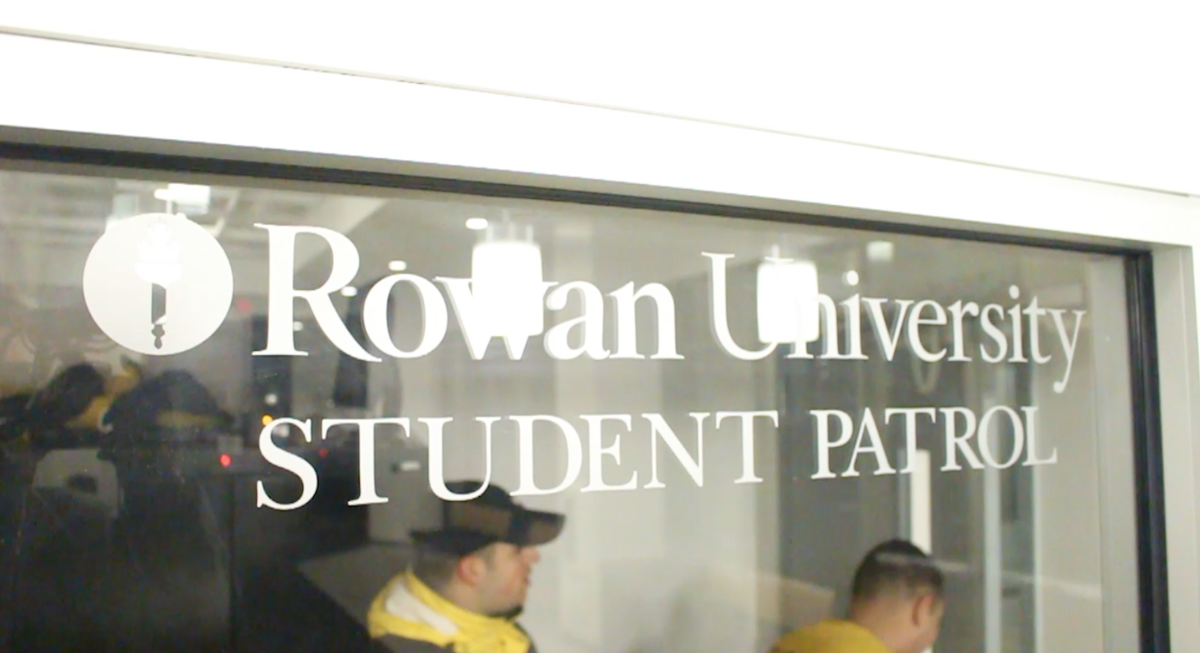On a brisk November evening Nicholas Rapisardi exhales a plume of vapor into the cold evening air. The time is 11:07 p.m. and he has been walking around Rowan University’s campus since 7 p.m. and will continue to do so for another 53 minutes.
Rapisardi is a member of Rowan’s Student Patrol. According to Student Patrol Deputy Supervisor, Michael Welding, there are 16 students who monitor Rowan’s campus and students in ways the officers of campus security and the Glassboro Police Department cannot.
As a junior Law and Justice major, it is Rapisardi’s first semester with Student Patrol.
“We’re able to work with cops and security officers here so we can see what they do, so it gives you an insight into what your future career could be,” Rapisardi said. “I wanted to get involved because it really helps with networking, it really shows you a different side of the field.”
The Program
The first Student Patrols were employed in 2008 and “underwent over thirty hours of training which included topics such as patrol concepts, report writing, CPR/AED/First Aid training and the U.S. Department of Homeland Security’s Incident Command System 100 level training,” according to Rowan University’s Public Safety website.
These training requirements are the same as those incorporated in Student Patrol today.
Although Student Patrols are not paid, participation in the program acts as an internship opportunity for undergraduate Law and Justice students. This way they are able to earn college credits for their work while gaining experience in the Criminal Justice field.
“The selection process for an internship is competitive,” said Jeffrey Schwartz, a law and justice professor at Rowan University. “Therefore, being selected is an accomplishment. It is an opportunity to get work experience with an actual law enforcement agency. Also, the skills and knowledge which you will develop can be a beneficial attribute when competing for criminal justice job openings.”
There are a number of listed requirements Student Patrol volunteers must meet before applying for an internship, according to the Rowan Public Safety website, such as how “all applicants must be 18 years of age, have and maintain a 2.5 GPA, be of good moral character, and must be willing to abide by the Student Patrol and Department of Safety Regulations, all while being a Rowan University Law and Justice Major.”
“As a measure of the program’s success, 65 percent of the students who have participated in Student Patrol are now employed in a full-time criminal justice direct or indirect positions,” Schwartz said. “The majority of the other graduates from the Student Patrol have either enrolled in various graduate schools or are commissioned in the armed forces.”

According to Schwartz, each student patrol member contributes 150 hours of patrol duty that includes a walking escort service, assistance with security functions and student residence patrol.
Although Student Patrol does not have any law enforcement authority, they are seen to enhance campus security.
“The overall campus benefits immensely,” Schwartz said. “The student patrol adds numerous eyes and ears to augment the fine job our security and public safety officers already achieve. Having more trained observers on the campus, with direct contact to public safety provides a more secure campus environment.”
The Student Patrol
Senior criminal justice major and entry level member of Student Patrol Kirsten Brown decided to join the program based on suggestions from her peers who told her it was a lot of fun and a good opportunity.
“I really want to go into law enforcement, like I would really like to go into State Police,” Brown said. “[The internship gives] a lot of hands on experience. There’s a lot of talking to officers, getting their knowledge. Networking a lot. You get to handle a lot of different things, emergencies that the average person doesn’t know how to handle.”
According to senior law and justice major Nick Apote, Student Patrol’s most frequented locations are around the North Halls near Edgewood Park Apartments, Rowan Boulevard and along Route 322 near Landmark Americana Bar and Grill and Holly Pointe Commons.
“The most [common] types of calls we get are usually intoxication or people being rowdy, noisy or if people are getting sick. A lot of fire alarms, fire calls, people overheating stuff in their apartments,” Apote said.
Rapisardi also talked about what separates Student Patrol from campus security is that they act as foot police while campus security typically patrols in their cars. This allows Student Patrol to witness things that campus security might not. This also allows students to approach Student Patrol on the street whenever they need assistance.
The Friday Night Patrol
Student Patrol does not have any law enforcement authority, therefore, no records are kept of their reports.
According to Sergeant Frank Agosta of campus security, if a member of Student Patrol makes a report to an officer of higher authority, Campus Security “treats the Student Patrol officer just like a citizen reporting a crime.”

“Our intentions to have them out on patrol is not to have them be required by law to have to go to court, so we will leave them out of the calls unless absolutely necessary to avoid this issue,” Agosta said.
We trailed Student Patrol on a Friday night during their 7 p.m. to 12 a.m. shift, to make the following chart, which logs where the officers spent their time.
For comments/questions about this story, email [email protected] or tweet @TheWhitOnline.

























































































































































!["Working with [Dr. Lynch] is always a learning experience for me. She is a treasure,” said Thomas. - Staff Writer / Kacie Scibilia](https://thewhitonline.com/wp-content/uploads/2025/04/choir-1-1200x694.jpg)









































